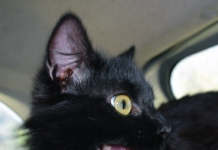Researchers have struggled for years to develop a nonsurgical way to sterilize dogs and cats. Now the Gary Michelson Found Animals Foundation has awarded a Harvard professor of bioengineering a $700,000 grant to develop a vaccine to sterilize animals by disrupting gonadotropin, a hormone that controls reproduction.
David Mooney, Ph.D., hopes to extend his team’s work in implantable, injectable vaccines that activate the immune system to fight cancer and infectious disease to develop a one-time contraceptive vaccine.
At Cornell, S.H. Cheong, DVM, Ph.D., a specialist in theriogenology (reproduction), says the possibility of avoiding surgery is reason enough for pet owners to celebrate: “The ease of use would maximize veterinary labor at shelters. An implant could potentially be designed to also include vaccines for rabies and other diseases, reducing the number of injections for pets and helping control disease in feral populations.”



